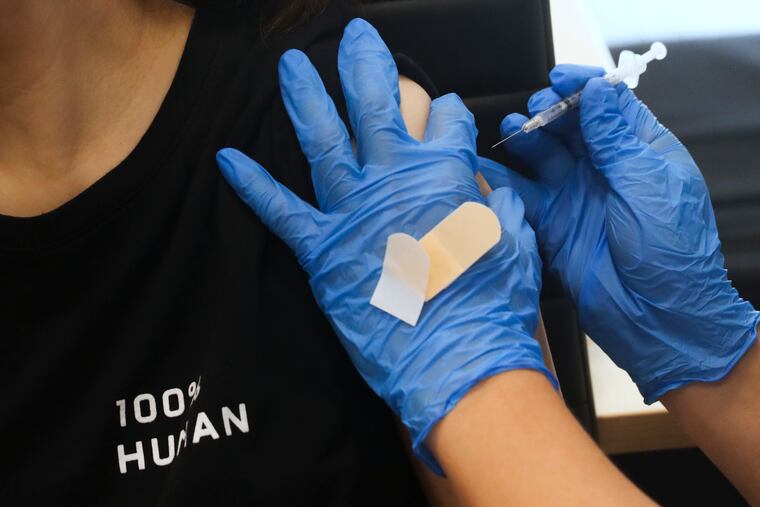After COVID-19 infection you still need your shots, Pitt study finds. Young adults may be more vulnerable.
University of Pittsburgh researchers looked at people who recovered from coronavirus infections and concluded they need to get vaccinated.

Natural immunity has become a popular excuse for not getting vaccinated against COVID-19, but a new study from the University of Pittsburgh found that antibody levels left over from a prior infection vary significantly — and in many cases aren’t enough to protect people from getting sick again.
The study, which was posted to the preprint website medRxiv and has not yet been peer-reviewed, analyzed antibody levels among adults who had recovered from moderate COVID-19 infections and found that people under age 30 had lower antibody levels than older people. The findings suggest that everyone, especially young adults, should get the COVID-19 vaccine even if they’ve recovered from the virus.
“I know a lot of people think, ‘I had COVID, so I don’t need to get a shot,’” said John Alcorn, a professor of pediatrics at the University of Pittsburgh School of Medicine and the study’s lead author. “But this study suggests that some patients, particularly young people, don’t have particularly good antibody memory after infection.”
The study analyzed immune response among 173 adults between ages 19 and 79 who had mild or moderate COVID-19 and did not require hospitalization, by measuring antibodies to the virus in blood samples. Researchers found that some people had high antibody levels, while others had low levels.
High antibody level samples were able to neutralize COVID-19, while low levels were not. The study did not seek to establish a threshold for antibody levels needed to stave off a new COVID-19 infection but rather sought to make clear that infection is still possible, even if antibodies are present.
» READ MORE: Penn finds that using automated texts to monitor COVID-19 patients at home saved lives
“We have a lot of people who’ve been sick before and a lot of people who are stopping the precautions they were doing,” Alcorn said.
There is still a lot researchers don’t know about COVID-19 and natural immunity, such as why some people have higher levels of antibodies, what level is sufficient to protect against reinfection, and how long natural immunity can last.
At the same time, Alcorn said, there is a lot of misinformation that might be influencing the decisions that people make about vaccination.
For instance, in a recent survey by the Kaiser Family Foundation, 80% of respondents believed or were unsure about at least one COVID-19 vaccine falsehood, such as the government exaggerating COVID-19 deaths and covering up vaccine deaths.
» READ MORE: How the new COVID antiviral drugs from Merck and Pfizer work, and who they’ll help
Alcorn said people are often misinformed about natural immunity and mistakenly believe that just because they have gotten COVID-19 once, they won’t be able to get it again.
A large study by Israeli researchers found that people who had recovered from COVID-19 had better protection against reinfection than fully vaccinated people who had never had the virus. But the study also found that natural immunity plus the vaccine offered even greater protection, and the authors cautioned against using the findings as an argument against vaccination.
The CDC recommends that even people who have had COVID-19 be vaccinated because the shots have been shown to offer better protection than natural immunity alone and because it’s unclear how long natural immunity lasts. Alcorn said he hopes the new findings about varying antibody levels will help people who are undecided about getting vaccinated understand why it may be beneficial.